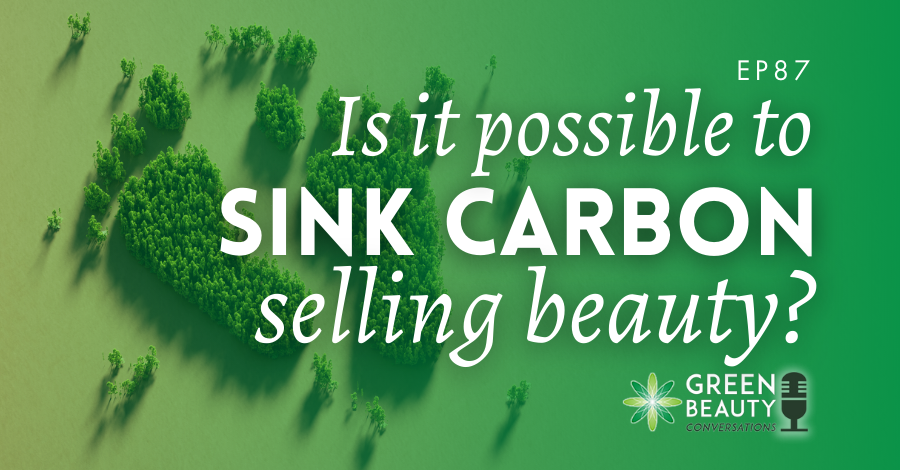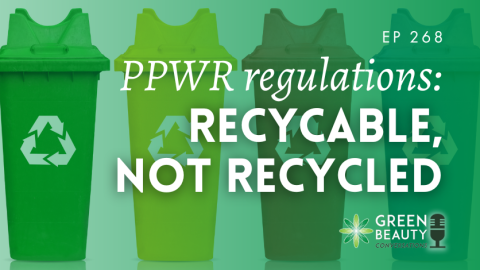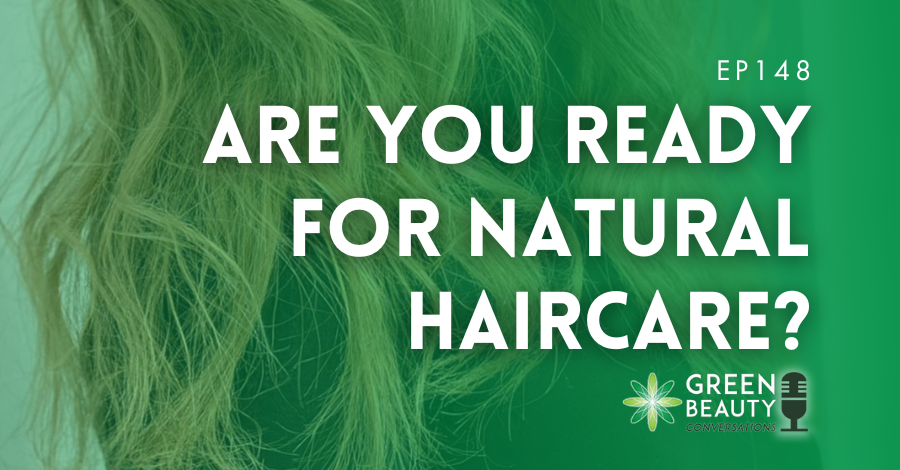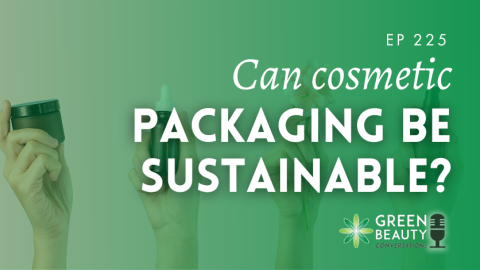Uncontrolled beauty consumerism is inherently not a sustainable economic activity. We’ve said it before on the Formula Botanica podcast but it’s worth stressing again: the entire life cycle of a consumer beauty product from cradle to grave can be a long list of carbon-producing processes. The growing, harvesting, processing and shipping of raw, natural materials coupled with beauty product distribution, retailing and waste of both product and packaging create a complex chain of carbon-emitting steps and unsustainable practices.
So, faced with this reality and a sense of overwhelm about the daily news on the climate crisis, what can an indie beauty brand meaningfully do to ensure it doesn’t burden the planet, or even manage to go further by becoming planet positive?
With this key question in mind, Green Beauty Conversations’ podcast host and Formula Botanica CEO Lorraine Dallmeier invited the founders of indie brand BYBI to shed light on their mission to become not just a carbon neutral but also a carbon-negative – or planet-positive – beauty brand.
In this insightful, no-holes-barred episode, Formula Botanica graduates and BYBI co-founders Dominika Minorovic and Elsie Rutterford prove the sceptics wrong. Listen in for some refreshing honesty in a world of greenwashing and hear how one beauty brand is carrying out sound plans to sink carbon while successfully selling skincare.
Honesty in a world of beauty greenwashing? Hear how @FormulaBotanica graduates' beauty brand @ByBiBeauty is sinking carbon while successfully selling skincare. #Bybi #carbonnegative #sustainablebeauty Share on X
In this episode on carbon-negative beauty, we hear from BYBI:
- how, surprisingly, there is no single, universally-accepted definition of carbon negative. But for BYBI, it means ensuring at every stage in their operations they sequester more carbon than they emit and that this process is verified by trusted external auditors.
- that, in their opinion, a truly carbon-negative claim should not be based on the purchasing of carbon credits to off-set emissions. BYBI see this as a start in the right direction, but ultimately a short-term solution masking the real challenge, which is the need to reduce emissions output at source and aim instead at carbon sequestering.
- that by being focused, dedicated and passionate about their carbon-negative goals, they have managed to persuade suppliers and manufacturing partners to adopt planet-friendly processes. This shows indie beauty brands can have a voice and make a difference.
- how they have managed to get to grips with identifying and working to eliminate most of their carbon footprint in their packaging and raw materials’ supply chain, but that the issue of their carbon footprint in the distribution step remains challenging.
Key takeouts on carbon negative beauty include:
- Be crystal clear and totally focused on a single, sustainability goal to work towards, whether you choose to tackle your carbon footprint or other issues like promoting Fair Trade or reducing single-use plastics. Don’t try to save the planet on every front otherwise you may confuse your customers and you probably can’t succeed with a plethora of missions all at once.
- Be persistent in asking questions of your supply chain partners about the provenance of their materials, energy use, logistics and other carbon-emitting operations. Small indie brands can have clout by voting with their feet if they feel they don’t get transparency from their suppliers.
- Verified, third-party lifecycle audits can be prohibitively costly for small businesses. BYBI suggest starting your own internal audit and offer their own open-source system – SUSTY – to other brands wishing to take the first steps in analysing their carbon emissions.
- Be aware that the investment you make in aiming to create a carbon-neutral or -negative business may not show immediate benefits in terms of increased sales from climate-conscious customers actively seeking out your brand. You need to be committed to carbon negativity for your brand and stay the course.
Meet our guests

Fast forward to today and Elsie and Dominika are now-published authors, beauty podcasters and entrepreneurs who have swapped their flat’s kitchen for a state-of-the-art, eco-lab in central London with a stellar team of scientists who help push for uncompromising results and the most climate-conscious practices, from production to packaging.
The BYBI brand also wholeheartedly supports sustainability at the highest level, preserving not only skin health, but the environment as well. It became a net-zero carbon brand at the end of 2020, and is committed to offsetting all historic carbon emissions too in its aim to be carbon negative. Read more about BYBI in our graduates’ showcase.
Find BYBI:
BYBI website
Instagram: @bybibeauty and @bybifounders
Facebook: @BYBIBeauty
If you enjoyed this episode, you might also like to listen to our other episodes on sustainability issues:
Biodegradable beauty: a license to greenwash the beauty industry?
Top sustainability challenges and concerns for the beauty industry
Are indie brands falling behind on sustainabiity?
Can a beauty brand ever be carbon neutral?
Are beauty brands falling behind on sustainability?
Green Beauty Opinion – Podcast 88: Beauty shoppers should vote with their wallets
In the previous podcast above, BYBI’s Elsie Rutterford and Dominika Minorovic said that developing BYBI as a truly sustainable brand was not making a mark on consumer consciousness as a key reason to choose their products. Is sustainability not such a big issue for consumers after all? In this follow-on Green Beauty Opinion, Lorraine points out that there is a clear mismatch between what consumers say they are doing or wish to do and what they are actually doing at the point of purchase. She ask why they are simply not voting with their wallets and choosing brands that embed sustainability in their DNA. Listen in for another thought-provoking green beauty short.
Listen to Lorraine’s Green Beauty Opinion:
Thank you for joining us for this episode of the Formula Botanica Green Beauty Conversations podcast. If you enjoyed listening, please share, subscribe and review this episode on Apple Podcasts, Spotify or Youtube so that more people can enjoy the show. Don’t forget to follow and connect with us on Facebook and Instagram.
FREE TRAINING
Learn how to become an
Organic Skincare Formulator
FREE TRAINING
How to become an
Organic Skincare Entrepreneur
FREE TRAINING
How to become an
Organic Skincare Entrepreneur
Leave us a comment
Lorraine Dallmeier is a Biologist, Chartered Environmentalist and the CEO of Formula Botanica, the award-winning online organic cosmetic science school. Read more about Lorraine and the Formula Botanica Team.


























